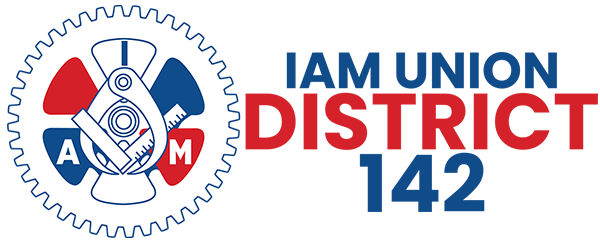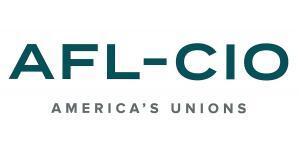
SUPPLEMENTAL BENEFITS – 2016 ENROLLMENT
We are pleased to announce for the first time, we have organized a system-wide enrollment at our ExpressJet bases for National Group Protection (NGP) supplemental benefits that are available to you as an IAM member.
 National Group Protection (NGP) will be in the crew rooms in February and March to conduct a supplemental benefits enrollment for IAMAW District 142 members at ExpressJet. Please meet in person with a benefit counselor to enroll or make changes to your existing coverage. Members can enroll in any of the crew rooms, not just your base location.
National Group Protection (NGP) will be in the crew rooms in February and March to conduct a supplemental benefits enrollment for IAMAW District 142 members at ExpressJet. Please meet in person with a benefit counselor to enroll or make changes to your existing coverage. Members can enroll in any of the crew rooms, not just your base location.
Accident Insurance · Cancer Insurance · Critical Illness Coverage
Short Term Disability · Whole Life Insurance
There are some benefit enhancements/upgrades this year, so please take the time to sit down with a benefit counselor and review your options. This is also an excellent time to make sure you have filed for your annual health screening benefits, which are part of the accident, cancer and critical illness benefit plans.
- Supplemental – these plans supplement any existing coverage
- Limited Underwriting – no medical or physical exams required
- Family Coverage – available with all of the plans (except disability)
- Portable – members can continue coverage if they leave the company (except disability)
- Payroll Deduction – premiums are paid through payroll deduction
Houston Feb 2–5
Atlanta Feb 15–19
DFW Feb 15–17
Newark Feb 16–19
O’Hare Feb 22–24
Detroit Feb 29–March 2
Atlanta March 7—11
O’Hare March 8—10
Houston March 8—11
DFW March 14—16
Cleveland March 22–24
Detroit March 29–31
If you have any questions regarding the upcoming enrollment, please contact National Group Protection (NGP) at 800-344-9016.
TURBULENCE AND INFLIGHT INJURIES
 It’s that time of year, when the weather is unpredictable and storms seem to be everywhere. In-flight turbulence is the leading cause of injuries to passengers and crew. Recently we had one of our own flight attendants suffer serious injury during a clear air turbulence event. There have also been other turbulence events that have been in the press with serious injuries. Please become familiar with the different types of turbulence.
It’s that time of year, when the weather is unpredictable and storms seem to be everywhere. In-flight turbulence is the leading cause of injuries to passengers and crew. Recently we had one of our own flight attendants suffer serious injury during a clear air turbulence event. There have also been other turbulence events that have been in the press with serious injuries. Please become familiar with the different types of turbulence.
What is turbulence? Turbulence is air movement that normally cannot be seen. It may occur when the sky appears to be clear and can happen unexpectedly. It can be created by any number of different conditions, including atmospheric pressures, jet streams, mountain waves, cold or warm fronts, or thunderstorms.
Different intensities of turbulence
- Light turbulence – briefly causes slight, erratic changes in altitude and/or attitude.
- Light chop – slight, rapid and somewhat rhythmic bumpiness without noticeable changes in altitude or attitude.
- Moderate turbulence – similar to light turbulence, but greater intensity. Changes in altitude/attitude occur. Aircraft remains in control at all times. Variations in indicated air speed.
- Moderate chop – similar to light chop, but greater intensity. Rapid bumps or jolts without obvious changes in altitude or attitude.
- Severe turbulence – large, abrupt changes in altitude/attitude. Large variation in indicated airspeed. Aircraft may be temporarily out of control.
- Extreme turbulence – aircraft is violently tossed about and is impossible to control. May cause structural damage.
Clear air turbulence
There are several notable problems with clear air turbulence:
- It cannot always be foreseen so there is no warning.
- It is usually felt at its mildest in the flight deck and is generally more severe in the aft section.
- It can occur when no clouds are visible.
- Aircraft radars can’t detect it.
- It is common at high altitudes, where cruising airline suddenly enter turbulent areas.
Turbulence is the leading cause of in-flight injuries. There are countless reports of occupants who were seriously injured while moving about the passenger cabin when clear air turbulence is encountered.
The F.A.A. requires the presence of flight attendants on aircraft, and it’s not to serve peanuts and soft drinks. The F.A.A. guidance on avoiding injuries is 11 pages long, with multiple references to the unpredictability of the problem and the need for everyone to exercise judgment and discretion. For example, when turbulence is strong, flight attendants can forgo walking through the aircraft to check if passengers are securely fastened. “If it gets really turbulent, it’s not logical to put yourself at risk to check seat belts,” said Nora Marshall, chief of the survival factors unit at the National Transportation Safety Board. But for some airline workers — whether it is stopping service to passengers or working through what seems to be manageable bumps — what seems logical at the time may seem foolish after the fact.
Turbulence is uncomfortable but very, very rarely poses a threat to the airplane. An example of this is the fact that injuries caused by turbulence are not uncommon, but the airplanes involved in such incidents almost never sustain damage.
Occasionally, clear air turbulence is a surprise and that is when most turbulence injuries occur. Asking the flight attendants to be seated is a precaution to keep them from getting hurt. One of the most common on the job injuries for flight attendants is from turbulence.
When your Captain advises you that there is going to be turbulence, always ask if you should be seated. If it does start to get bad and you have not heard from your Captain, use good judgment and take your seat. The passengers will survive without their sodas. It is ok to make a P.A. and advise passengers to remain seated with their seatbelts fastened and that for your safety you are taking your seat as well. Also, before you start a trip do look up the weather you will be flying through so you have information. During your briefing, be proactive and ask the Captain about known weather. If you have any questions please contact Sharon Moss-Bonner CRJ Flight Safety Coordinator at or Stephanie Starks IAM ERJ Flight Safety Coordinator at
RGT 2016
 This week ExpressJet’s FAA Cabin Safety Inspectors observed some RGT classes. First and foremost, don’t be alarmed if they are in your class just make sure you are prepared. A few things you can do to make sure you are prepared for RGT 2016. Attend at least one RGT workshop, this year evacuation drills are scenario based. You have to not only say your drill, but also listen to the scenario being presented to you and continue to listen as the scenario changes throughout the drill exercise. Be prepared to conduct CPR while you are on the cabin trainer, preparing you to be in a small space if this were to occur on the a/c. Review ABP briefings, emergency equipment, CRM and full security search. The study guide is a very helpful tool to help further prepare you. In addition, if there are any issues with your manual please take note of what those issues are and be clear you and the trainer are on the same page regarding the specific problems with your manual. Keep in mind that while you may not be removed from class, any errors in your manual are being reported to your supervisor. There has been some confusion recently regarding issues with the manual. Please let your grievance reps know if you have any questions.
This week ExpressJet’s FAA Cabin Safety Inspectors observed some RGT classes. First and foremost, don’t be alarmed if they are in your class just make sure you are prepared. A few things you can do to make sure you are prepared for RGT 2016. Attend at least one RGT workshop, this year evacuation drills are scenario based. You have to not only say your drill, but also listen to the scenario being presented to you and continue to listen as the scenario changes throughout the drill exercise. Be prepared to conduct CPR while you are on the cabin trainer, preparing you to be in a small space if this were to occur on the a/c. Review ABP briefings, emergency equipment, CRM and full security search. The study guide is a very helpful tool to help further prepare you. In addition, if there are any issues with your manual please take note of what those issues are and be clear you and the trainer are on the same page regarding the specific problems with your manual. Keep in mind that while you may not be removed from class, any errors in your manual are being reported to your supervisor. There has been some confusion recently regarding issues with the manual. Please let your grievance reps know if you have any questions.
CRJ
submitted by Marche’ Johnson-Cooper Special Representative
Grievance Report
This week 1 grievance was filed in ATL, and once submitted to Grievance Mediation.
ERJ
submitted by Sara Gonzales
Step 2 Grievances
 A total of 22 grievances were heard in Houston on January 27th. The base breakdown for those grievances was as follows:
A total of 22 grievances were heard in Houston on January 27th. The base breakdown for those grievances was as follows:
IAH-3
DFW-1
EWR-9
CLE-2
ORD-7
Since those hearings we have received one grievance from CLE for appeal to Step 2.
Grievance Mediation
We have confirmed our next grievance mediation dates will be February 9-11 in Atlanta.
Upcoming Local Lodge Meetings
2339N (EWR)
EWR Embassy Suites
95 Glimcher Realty Way, Elizabeth, NJ 07201
Tuesday, February 9, 2016 3pm
transportation provided from EWR P-4
2339O (CLE & ORD)
ORD Best Western
10300 W Higgins Rd, Rosemont, Illinois, 60018
Wednesday, February 10, 2016 1pm
transportation provided from ORD bus/shuttle center
2339H (ERJ-DFW & IAH)
Ramada Houston Intercontinental East
6115 Will Clayton Pkwy, Humble, TX 77338
Tuesday, February 16, 2016 1pm
transportation available from IAH
2339A (CRJ-DFW, DTW & ATL)
Fairfield Inn & Suites
1255 Walker Ave. East Point, GA 30344
Wednesday, February 17, 2016 2pm
transportation available from ATL

